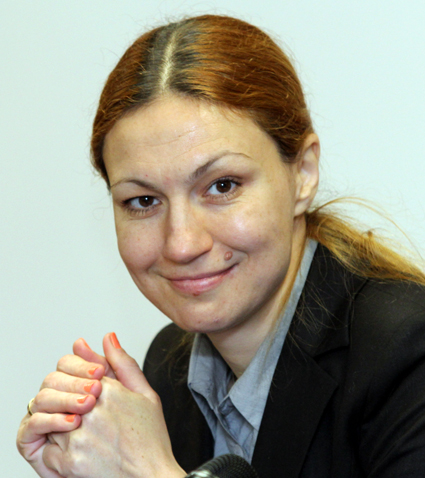Scholars have for many years been trying to explore the relationship of money and happiness and to answer the question why loads of cash cannot buy us happiness. It has turned out though that the answer to the riddle is not that complicated and is rooted in human psychology. We can find it in the report entitled “If money doesn't make you happy, then you probably aren't spending it right”. The report is the work of scholars from the University of British Columbia, Harvard University and Amsterdam University.
The authors of the report - based on experiments held - sum up a few steps related to the process of spending. When followed they would maximize happiness that money can buy, says Desislava Nikolova from the Institute of Market Economics.
 „In the first place, they advise us not to buy material things but rather experiences. Material things wear out with time while experiences keep up good memories. Material things bring happiness when we use them but fail to do so when we just think of them. Besides, experiences are related to sharing with other people and this is the source of happiness. The authors of the report also advise us to buy more, but smaller things instead of opting for major purchases such as deluxe houses or expensive cars. The point is that small and more frequent joys account for greater happiness. Help others, give presents and involve in charity, scholars urge readers. Humans are intrinsically social beings and spending on others is a proven way to greater happiness unlike selfish spending.”
„In the first place, they advise us not to buy material things but rather experiences. Material things wear out with time while experiences keep up good memories. Material things bring happiness when we use them but fail to do so when we just think of them. Besides, experiences are related to sharing with other people and this is the source of happiness. The authors of the report also advise us to buy more, but smaller things instead of opting for major purchases such as deluxe houses or expensive cars. The point is that small and more frequent joys account for greater happiness. Help others, give presents and involve in charity, scholars urge readers. Humans are intrinsically social beings and spending on others is a proven way to greater happiness unlike selfish spending.”
Desislava Nikolova comments on money, happiness and the poverty line in Bulgaria:
“Latest Eurostat figures on poverty have recently come out. It has turned out that Romania is poorer. Various factors have influenced this positive development. In the recent years the share of the poor has been about 21-22 percent. However, the feeling of poverty is not impacted by official statistics. It is an indisputable fact that the poverty line in Bulgaria is up, and living standards have tangibly improved. It is however also true that the population that lives on incomes lower than the average one and defines itself as poor has a constant share, at 20%. In recent years several groups have emerged threatened by poverty. These include families with three or more children and single-parent families. It has turned out that the elderly are no longer under the greatest threat from poverty. However in the Eurostat research efforts should be focused on that group and on the unemployed. Unemployed are faced with a seven times greater risk of poverty compared to employed Bulgarians. There is a small share of working poor but there are worse problems in the country's social policy. In Bulgaria the share of structural unemployment is too large. It is not influenced by either growth or the shrinking of economy, but rather by education, qualifications and skills that the labor market requires. In Eurostat findings the share of young Bulgarians who are not trained and who refuse to join the labor market is the largest across Europe.”
Scholars argue that provided people spend their money the right way, they stand good chances of being happy. With such a poverty line though, it is hardly accidental that Bulgarians are among the unhappiest nations in Europe.
English Daniela Konstantinova
A photo exhibition called “Bosilegrad Before and Now – 2” will open on October 13 at the Municipal Art Gallery in the town of Karlovo. The photo exhibition contains 40 panels with motifs and landscapes from Bosilegrad, Serbia, and several Bosilegrad..
The second edition of the unique Blackthorn Festival will be held today in the village of Salash near Belogradchik, northeastern Bulgaria. The event will begin on the square, where locals will offer sweets and jam from tart blackthorns collected in..
U.S. sanctions on NIS activated despite expectations of delay U.S. sanctions on Serbian oil company NIS – Naftna Industrija Srbije came into force on Thursday after being postponed eight times and despite expectations of yet another postponement,..
The virtual space where you can find information about Bulgarian restaurants in Berlin, the services offered by Bulgarian craftsmen, as well as addresses..
How to preserve and maintain public trust in media - this is the central topic for participants in the Public Broadcasters..
From today until 28 October, Vidin will transform into a cultural hub to celebrate its patron saint's day - St Dimitar's Day (Dimitrovden). The new..

+359 2 9336 661
